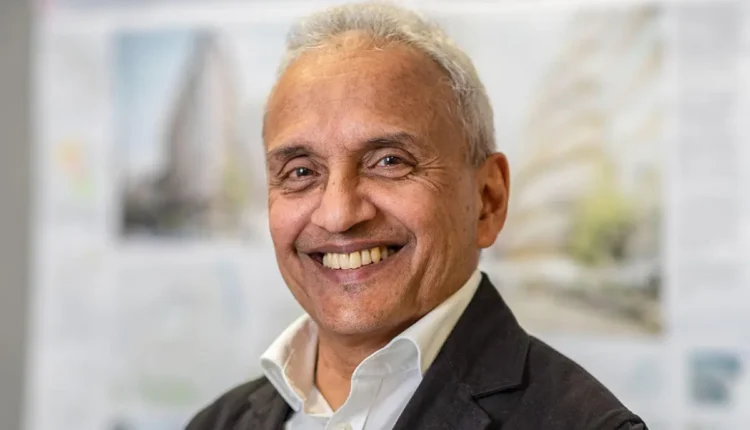Sunand Prasad OBE, born in 1950 in Sevagram, India, is a distinguished British architect and a senior partner at Penoyre & Prasad. His multifaceted contributions to health, education, and civic architecture have earned him international acclaim.
Early Life and Education of Sunand Prasad
Sunand Prasad’s journey began in central India, where he spent his formative years before relocating to the UK with his family in 1962 at the age of 12. This transition marked the beginning of a path that would lead him to become one of the most influential figures in contemporary architecture.
Prasad’s educational journey is as impressive as his professional one. He studied at the University of Cambridge and the Architectural Association, further honing his expertise. He later obtained a PhD from the Royal College of Art, solidifying his foundation in architectural theory and practice.
Career Milestones
In 1988, Sunand Prasad co-founded Penoyre & Prasad with Greg Penoyre. Under their leadership, the firm grew into a renowned multi-sectoral practice known for its innovative approach to health, education, and civic projects. Their work has consistently pushed the boundaries of architectural design, integrating functionality with aesthetic excellence.
Prasad’s influence extends beyond his firm. In 2008, he was appointed a member of the Mayor’s Design Advisory Panel for London, contributing to the city’s architectural landscape. His involvement with the Fourth Plinth Commissioning Group showcased his ability to blend art and architecture, selecting works that enriched Trafalgar Square.
Leadership and Advocacy
Sunand Prasad’s leadership is marked by his tenure as President of the Royal Institute of British Architects (RIBA) from 2007 to 2009. During this period, he championed various initiatives aimed at addressing climate change and promoting sustainability within the built environment. His commitment to these causes earned him a place on the Independent’s 2008 Green List, ranking 26th for his contributions.
Prasad’s advocacy for sustainable architecture is exemplified by his participation in the Cape Farewell programme, where he traveled to Greenland in 2008. This journey, alongside artists and scientists, resulted in an art installation exhibited through the ‘Unfold’ exhibition, highlighting the intersection of climate science and creative expression.
Contributions to the Built Environment
Sunand Prasad has been instrumental in shaping policies and frameworks that enhance the quality of architecture and construction. As a founding Commissioner of the UK Government’s Commission for Architecture and the Built Environment (CABE), he launched the Enabling Programme and led its work on Skills. His involvement with the Construction Industry Council’s Design Quality Indicator underscores his commitment to maintaining high standards in architectural practice.
Prasad’s efforts extend to advocating for equitable and effective climate treaties. He was a member of the Steering Committee of the UK Government’s Innovation & Growth Team on Low Carbon Construction, which published a significant report in November 2010. His dedication to sustainable development is further reflected in his extensive contributions to books and journals on the subject.
Teaching and Mentorship
Beyond his professional achievements, Sunand Prasad is passionate about education and mentorship. He has taught, lectured, and acted as an external examiner, sharing his knowledge and inspiring the next generation of architects. His role as a trustee of the think tank Centre for Cities and Article 25, a charity focused on disaster relief architecture, highlights his commitment to using architecture as a tool for positive change.
Recognition and Legacy
Sunand Prasad’s contributions to architecture and urban regeneration have been widely recognized. Already a Member of the Order of the British Empire (MBE), he was appointed Officer of the Order of the British Empire (OBE) in the 2023 Birthday Honours for his services to regeneration. This accolade is a testament to his enduring impact on the architectural landscape and his relentless pursuit of excellence.
Also Read:Balwinder Singh Rana: The Courageous Voice Against Racism and Fascism

